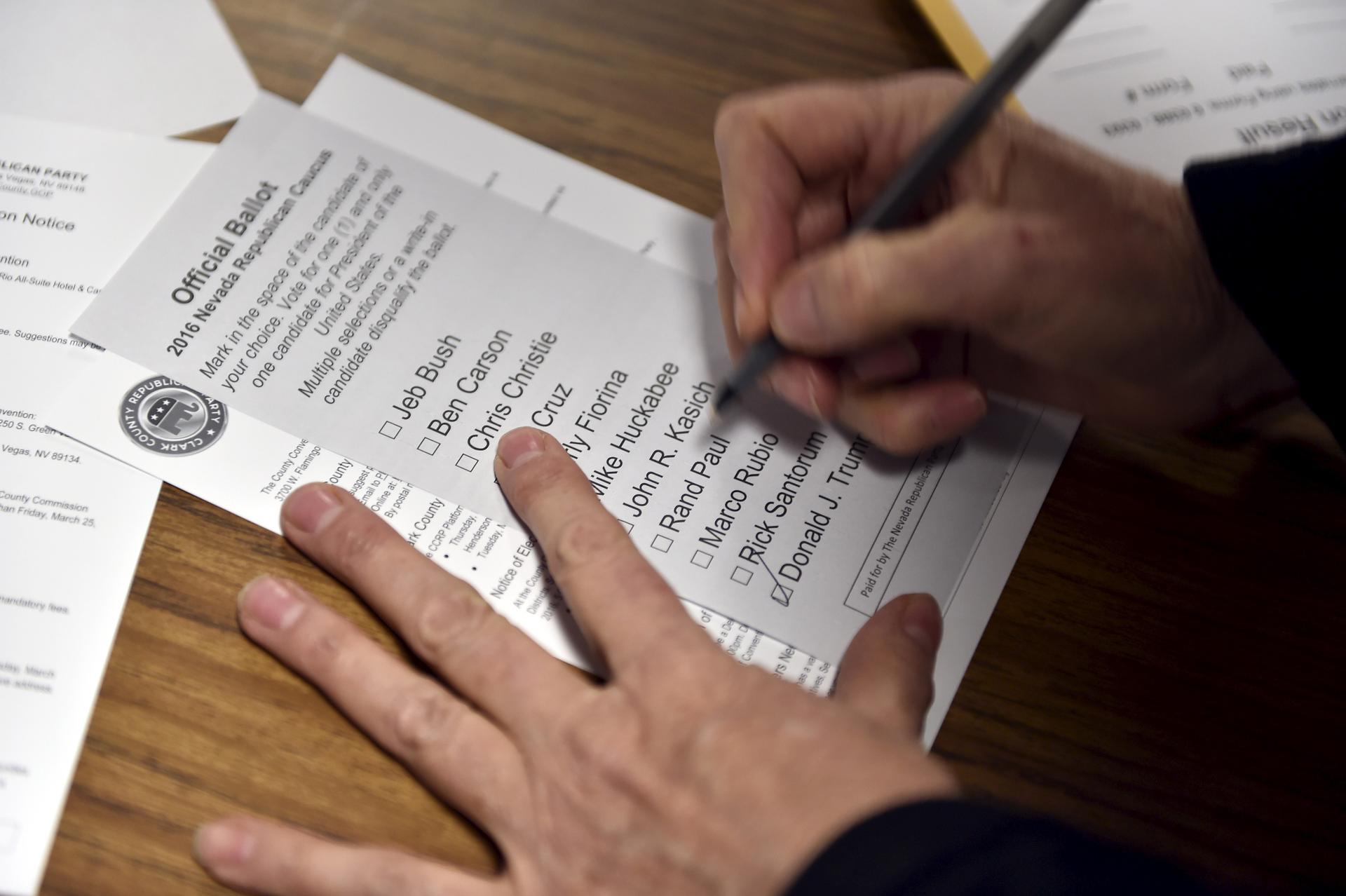Presidential candidates on the Middle East: here’s why it matters
A voters checks on his preferred candidate as he casts his ballots during the Nevada Republican presidential caucus at Western High School in Las Vegas, Nevada February 23, 2016.
Tune in to political interviews, debates or TV ads these days and you'll likely come across statements about the Middle East.
Ted Cruz has promised to “utterly destroy ISIS” adding that “we will carpet-bomb them into oblivion. I don’t know if sand can glow in the dark, but we’re going to find out!”
Donald Trump famously said there should be a ban on all Muslims coming to the US "until our country’s representatives can figure out what’s going on.”
And other candidates have also said worrying things about the Middle East. Kim Ghattas, who has covered the Middle East as well as US presidential campaigns, has written about this issue for Foreign Policy magazine.
Ghattas says a lot of what we have been hearing about the Middle East from presidential hopefuls lack accuracy and nuance. To some extent, that's not surprising in a presidential race.
"They, expectedly, speak in bumper sticker sound bites," she says, adding that it's hard to get into details when candidates are on the campaign trail and speaking to voters. It's also true that candidates, and even presidents, aren't experts on all issues. They'll have advisers by their sides if they're elected.
But, she points out, that doesn't mean what they say about the Middle East isn't consequential.
Ghattas says that, yes, the economy is on the minds of many voters this election. But so is ISIS. That's why it's important for candidates to speak with knowledge about the region.
"It's important to know enough about this issue that you don't overplay the threat that it poses to the United States itself […], while at the same time not downplaying it," she says, adding that the latter is what President Barack Obama has done at times.
"In the end, foreign policy and the economy merge," explains Ghattas. "If the world is in upheaval, it has an impact on the US economy as well."
Some of what the candidates say could also stoke anti-American sentiments in the Middle East, she says.
Sources, friends and family in the Middle East have told Ghattas that they are watching the race in US with worry.
"There is a lot of anxiety, there is bewilderment, people in the Middle East don't really understand the phenomenon of Donald Trump, […] but I think that at the end of the day, they are hoping that things will stabilize."
"This is a year where there is a lot of upheaval, a lot of sweeping statements being made by parties everywhere, unfortunately in the Middle East it comes with a blood shed as well," Ghattas says.
Every day, reporters and producers at The World are hard at work bringing you human-centered news from across the globe. But we can’t do it without you. We need your support to ensure we can continue this work for another year.
Make a gift today, and you’ll help us unlock a matching gift of $67,000!
